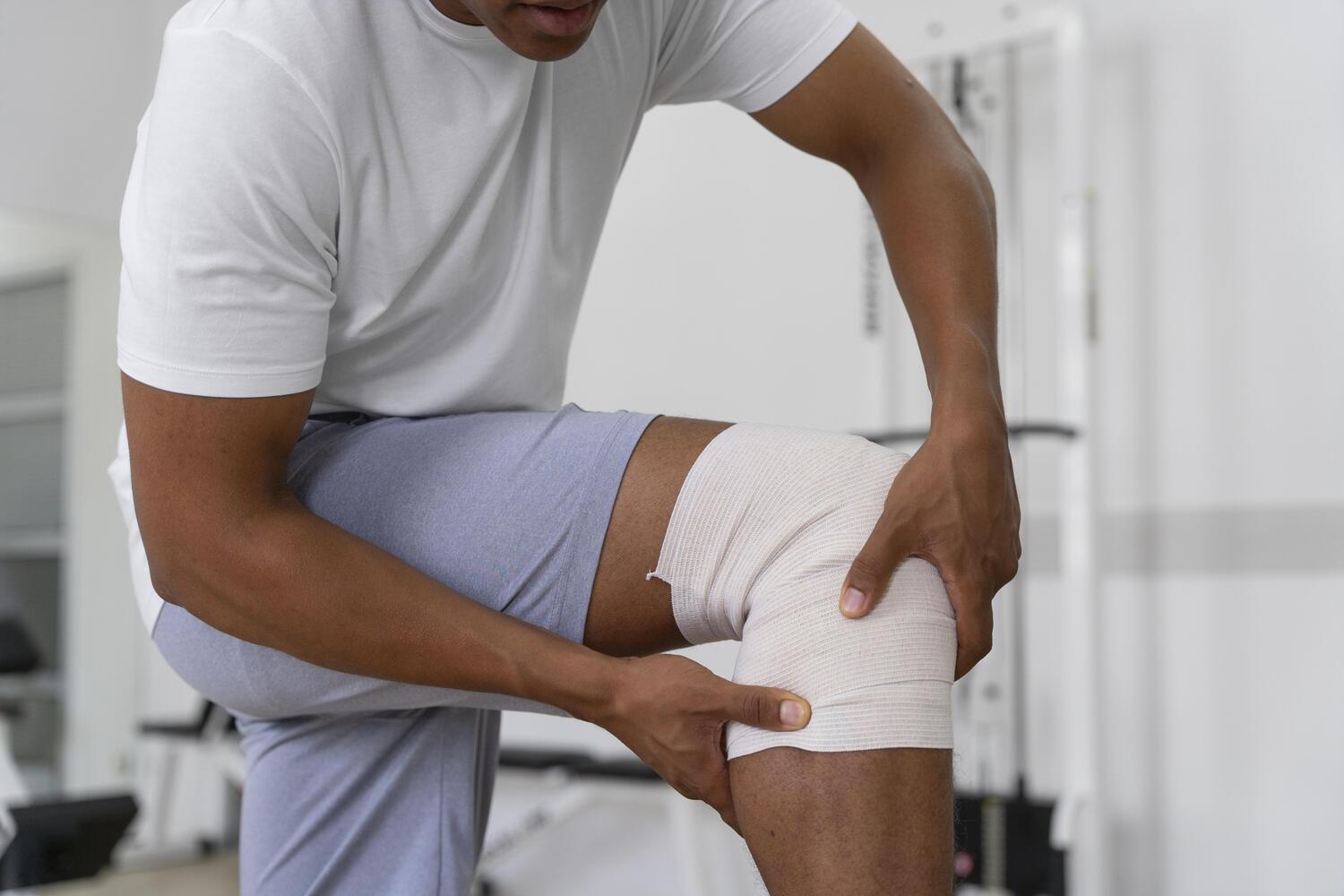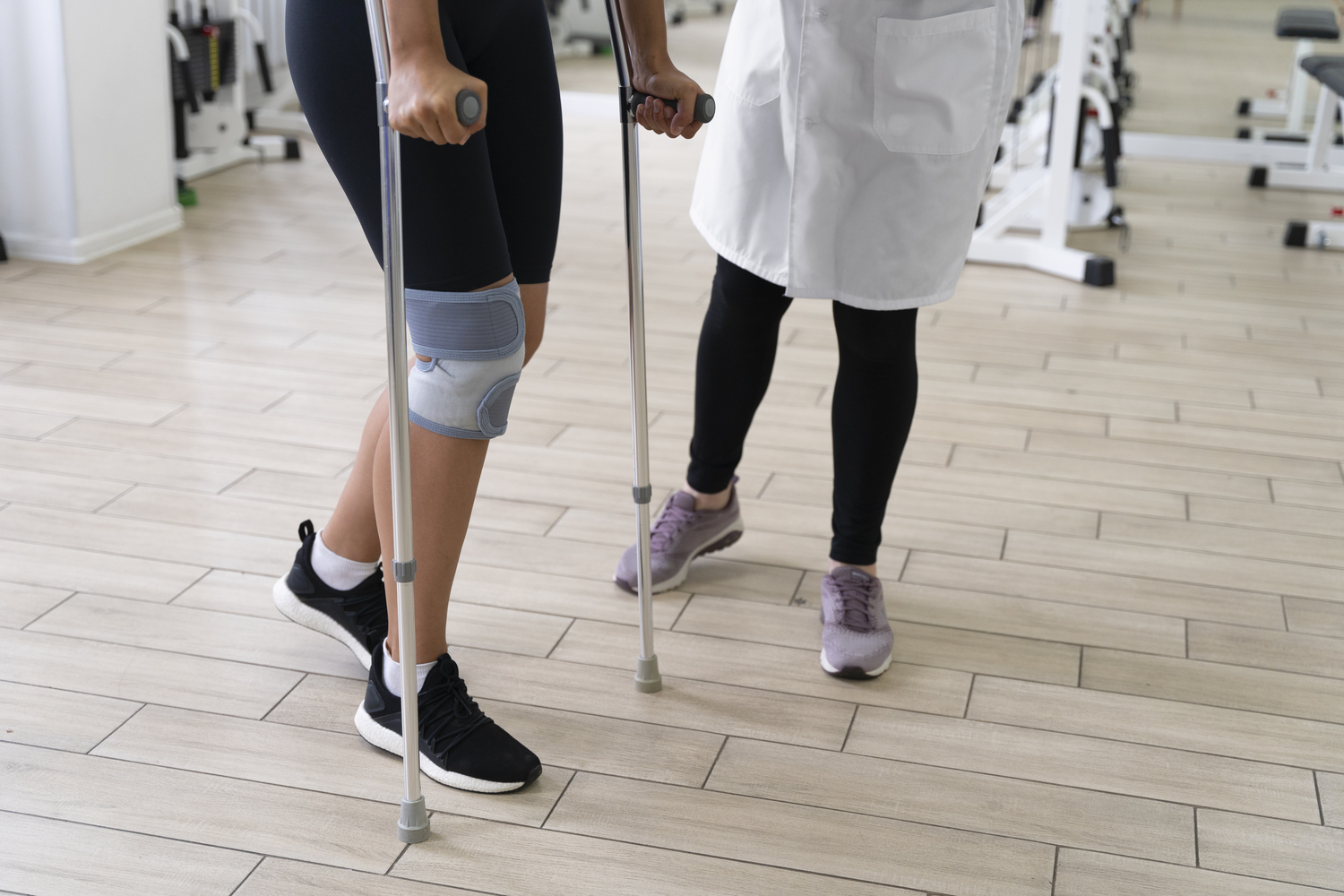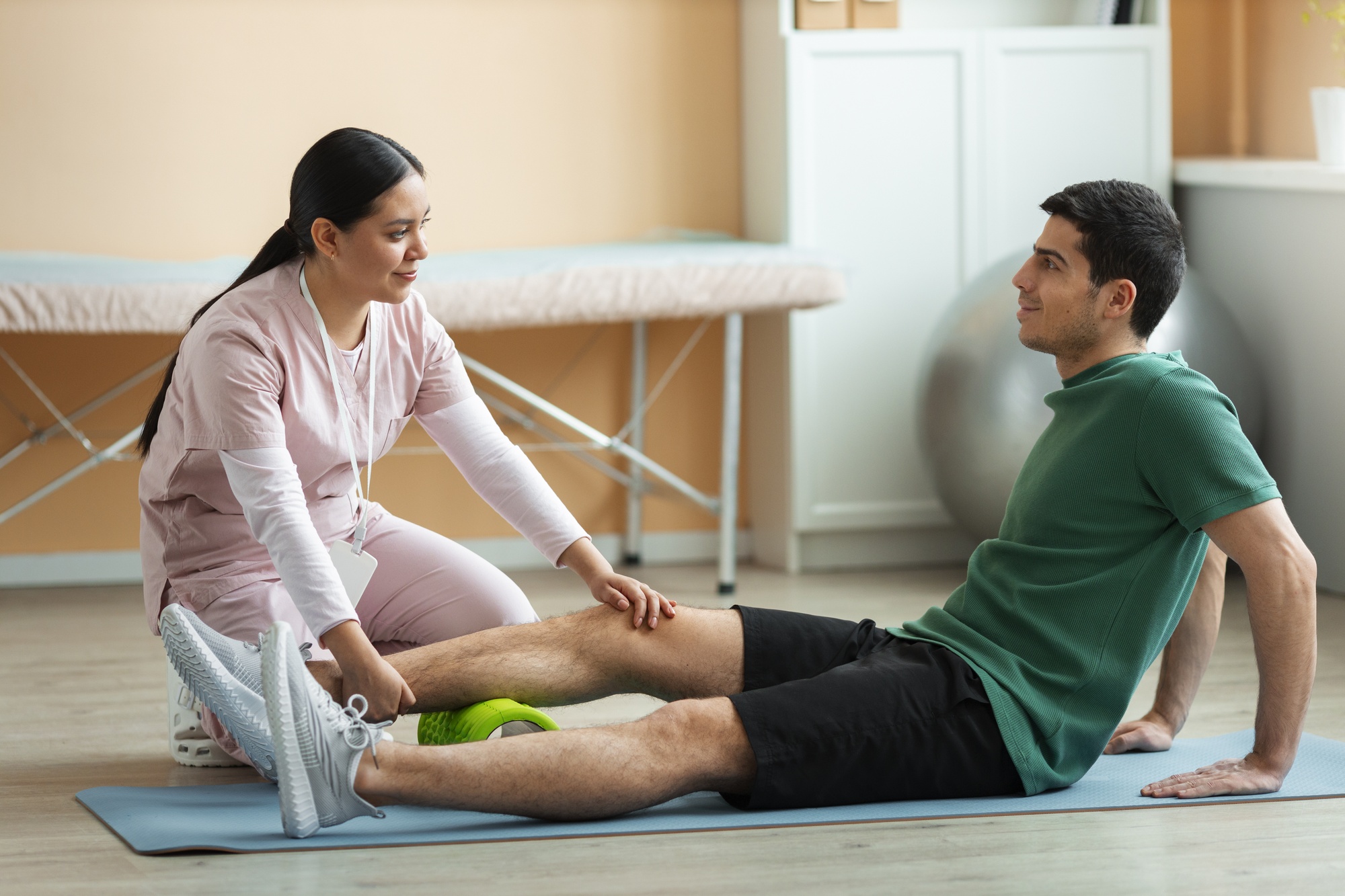What to Know and Do Before and After Knee Replacement Surgery
Knee replacement surgery can be a challenging procedure that requires endurance and mental strength to decide to undergo the operation. It is also important to be aware of the nuances before and after knee replacement surgery, as this will help you prepare well in advance for the procedure.
What is Knee Replacement Surgery?
The procedure to replace all or part of your knee joint is called a knee replacement. This is also known as an arthroplasty or replacement of a joint. The damaged components of your natural knee joint will be removed by a surgeon and replaced with a metal and plastic prosthetic.
The surgeon may recommend knee replacement either partial or full; if you experience severe symptoms that don’t improve with nonsurgical treatments, such as joint pain, stiffness, limited mobility (difficulty moving your knee), and swelling. Arthritis, particularly osteoarthritis, is the most common condition that leads people to consider knee replacement surgery, although some individuals with rheumatoid arthritis may also require surgery depending on the condition of the knees.

What to Expect Before and After Knee Replacement Surgery
Once you and your surgeon have fixed the date for your surgery, then begin your prehabilitation. This consists of stretching, strength training and exercises for your muscles to help you for your surgery procedures. The better shape you are in before surgery the faster will be your recovery. You should have someone beside you to assist you during and post-surgery. A family member or friend who can serve as your “coach,” helping you by attending preoperative evaluations, therapy sessions, post-discharge training, and staying with you during the first week after discharge.
It is also necessary to keep the weight in check before surgery and be in shape as much as possible, by reducing your calorie intake and doing light to moderate exercises regularly.
Total Knee Replacement Surgery Recovery Timeline

The first week
Your first week will include the exercises as directed by your physical trainer to enable you to improve your motion and mobility. After consulting with your surgeon and post-surgery consulting doctor you can start with strength training but not go overly aggressive with the exercises. Follow protocols that are listed for post knee replacement care.The second and third week
This is the time when you are progressing with mobility improvement and range of motion. Generally, most people progress from using a cane to nothing at all while walking in the first three weeks after knee replacement surgery. The physical training can advance based on your physiotherapist’s instructions and check-ups about the progress made over the last few days of post knee replacement care after the surgery. Your walking should be better with ease of function and you can stand for up to or more than ten minutes.
After the fourth week of knee replacement surgery
Post your exercise and rehab in the first 3-4 weeks, you will be able to move freely with less or no inflammation and improved bending strength. You can start for long walks with no cane or assistance and resume your daily activities with ease. Remember it is better to go steady and slow than over-exert yourself with aggressive exercises. It is also important to keep in check with your surgeon and physiotherapist before you start your extra strenuous routine like driving the car, cooking, long-standing hours tasks, etc.
Day 1
Some patients are discharged from the hospital on the same day as their surgery.
Your healthcare team will assist you in getting up and moving. You’ll learn how to use assistive devices and navigate stairs.
First week
Your physical therapy exercises at home will focus on improving gait, range of motion, and strength.
Follow your PT’s advice and complete your exercises daily. If you experience excessive pain or swelling, contact your healthcare team.
By week 3
You should be able to walk and stand for over 10 minutes. You may be using a cane or no assistive device at all.
Continue your exercises to enhance mobility and range of motion.
Weeks 4–6
Begin resuming daily activities like work, driving, travel, and household tasks.
Your PT may suggest longer walks. Continue your exercises to improve mobility and range of motion.
Weeks 7–11
Start reintroducing low-impact physical activities such as swimming and cycling.
Keep up with rehab for strength, range of motion, and endurance. Many people see significant progress during this period.
Day 1
Some patients are discharged from the hospital on the same day as their surgery.
Your healthcare team will assist you in getting up and moving. You’ll learn how to use assistive devices and navigate stairs.
First week
Your physical therapy exercises at home will focus on improving gait, range of motion, and strength.
Follow your PT’s advice and complete your exercises daily. If you experience excessive pain or swelling, contact your healthcare team.
By week 3
You should be able to walk and stand for over 10 minutes. You may be using a cane or no assistive device at all.
Continue your exercises to enhance mobility and range of motion.
Weeks 4–6
Begin resuming daily activities like work, driving, travel, and household tasks.
Your PT may suggest longer walks. Continue your exercises to improve mobility and range of motion.
Weeks 7–11
Start reintroducing low-impact physical activities such as swimming and cycling.
Keep up with rehab for strength, range of motion, and endurance. Many people see significant progress during this period.
Prepare for Postoperative Life: A Checklist
You’ll need to make some adjustments to your daily life as you recover after knee replacement surgery. If you need to go upstairs to sleep or use the bathroom, it may be helpful to stay somewhere with everything on one level for the first few days or have a family member or friend stay with you to assist.
You will feel more fatigued and sorer than usual, and might not be ready to handle household chores immediately. It’s a good idea to prepare meals ahead of time ask for help with simple tasks and avoid putting pressure on the new knee.
In the first one to two weeks, your focus should be on healing and reducing inflammation, for which you can often use ice packs or an ice machine. You may need to take your narcotic pain medicines during this time, along with other pain management techniques.
Keep in mind that recovery is different for everyone—some people bounce back quickly, while others take more time. Try to be realistic about your recovery and take more rest, particularly in the early stages. The pain and medication may affect your energy levels and ability to complete tasks.
Frequently Asked Questions:
1. How can I improve my recovery before and after knee replacement surgery?
It is important to strengthen the muscles around your knee before and after knee replacement surgery to speed up recovery. A healthy diet supports tissue healing. You can set up your home spaciously to make it easier for you to move around after surgery. Stay strong and be mentally prepared for the challenges of recovery.
2. How long does it take to fully recover from knee replacement surgery?
Full recovery can take several months, with the first 6-8 weeks being the most challenging ones. You will notice some improvement within a few weeks, but it can take up to a year for complete healing maximum mobility and ease of function.
3. Is it common to feel pain after knee replacement surgery?
Mild to moderate pain is often felt which is common in the first few weeks. With proper pain management, physical therapy, and rest, the pain should decrease over time. If you feel severe or persistent pain you should consult your doctor.
4. What is the role of physical therapy in recovery?
Physical therapy is essential to regain strength, flexibility, and mobility and generally begins soon after surgery and continues for several months to help achieve the best possible recovery.
5. What should I do if I notice signs of infection after surgery?
If you notice redness, increased pain, fever, or unusual drainage, you must immediately contact your surgeon for evaluation and treatment.
Looking to opt for Knee Replacement Surgery?
At MJ Naidu, our skilled professionals are committed to understanding your unique condition and providing personalized care throughout your treatment and recovery process. From pre-surgery preparation to post-operative care, we are dedicated to ensuring your comfort and helping you achieve the best possible outcome.
Relevant Resource : Hairline Fracture

